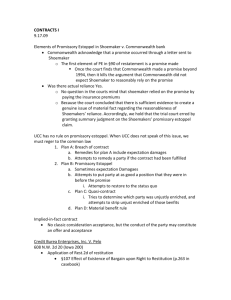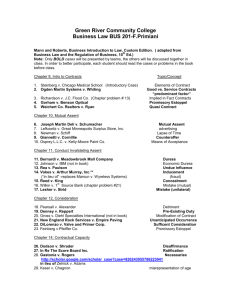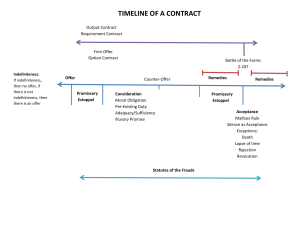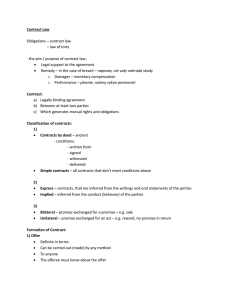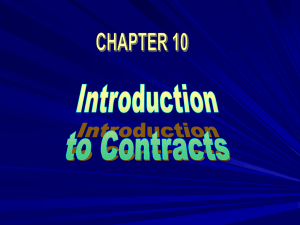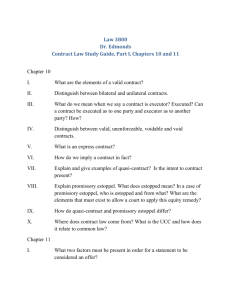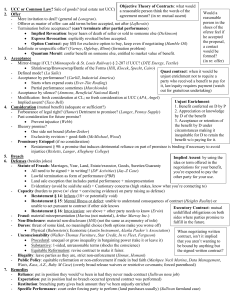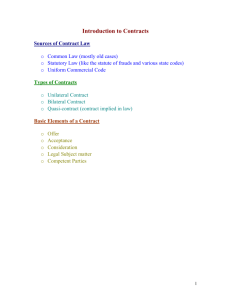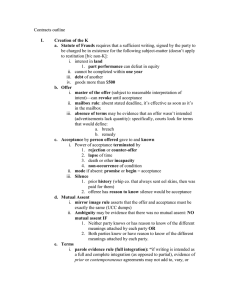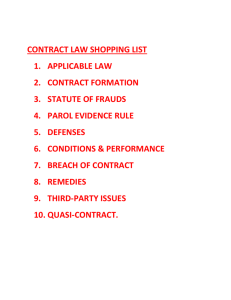Contracts - Frustrated Bar Examinee
advertisement
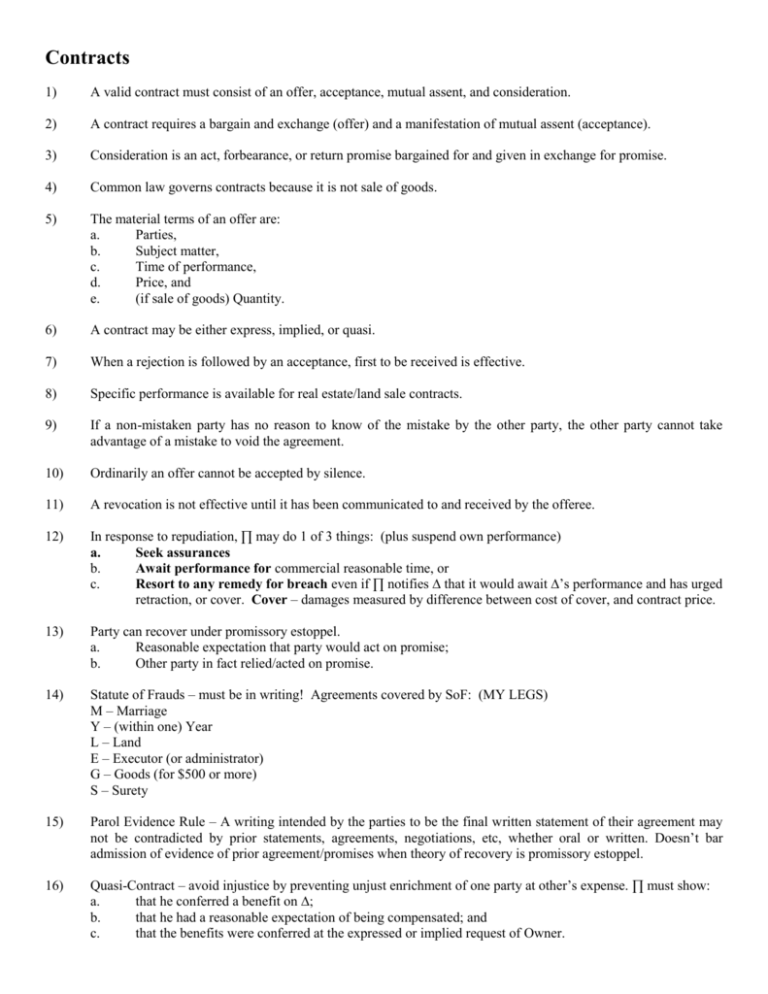
Contracts 1) A valid contract must consist of an offer, acceptance, mutual assent, and consideration. 2) A contract requires a bargain and exchange (offer) and a manifestation of mutual assent (acceptance). 3) Consideration is an act, forbearance, or return promise bargained for and given in exchange for promise. 4) Common law governs contracts because it is not sale of goods. 5) The material terms of an offer are: a. Parties, b. Subject matter, c. Time of performance, d. Price, and e. (if sale of goods) Quantity. 6) A contract may be either express, implied, or quasi. 7) When a rejection is followed by an acceptance, first to be received is effective. 8) Specific performance is available for real estate/land sale contracts. 9) If a non-mistaken party has no reason to know of the mistake by the other party, the other party cannot take advantage of a mistake to void the agreement. 10) Ordinarily an offer cannot be accepted by silence. 11) A revocation is not effective until it has been communicated to and received by the offeree. 12) In response to repudiation, ∏ may do 1 of 3 things: (plus suspend own performance) a. Seek assurances b. Await performance for commercial reasonable time, or c. Resort to any remedy for breach even if ∏ notifies ∆ that it would await ∆’s performance and has urged retraction, or cover. Cover – damages measured by difference between cost of cover, and contract price. 13) Party can recover under promissory estoppel. a. Reasonable expectation that party would act on promise; b. Other party in fact relied/acted on promise. 14) Statute of Frauds – must be in writing! Agreements covered by SoF: (MY LEGS) M – Marriage Y – (within one) Year L – Land E – Executor (or administrator) G – Goods (for $500 or more) S – Surety 15) Parol Evidence Rule – A writing intended by the parties to be the final written statement of their agreement may not be contradicted by prior statements, agreements, negotiations, etc, whether oral or written. Doesn’t bar admission of evidence of prior agreement/promises when theory of recovery is promissory estoppel. 16) Quasi-Contract – avoid injustice by preventing unjust enrichment of one party at other’s expense. ∏ must show: a. that he conferred a benefit on ∆; b. that he had a reasonable expectation of being compensated; and c. that the benefits were conferred at the expressed or implied request of Owner.
